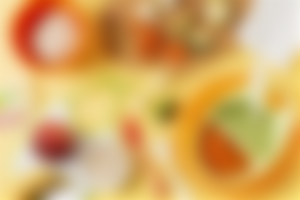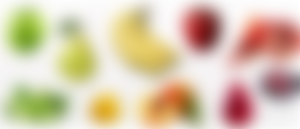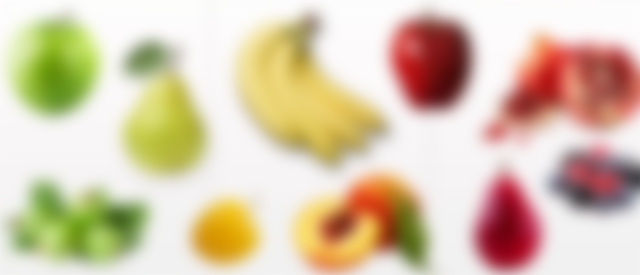The diet of newborns and infants is as often a source of distress for parents as the diet of breastfeeding mothers. For the health of your youngest, proper nutrition is extremely important. It is affected not only by the baby's diet, but also by the mother's diet during and even before pregnancy. The mother's diet provides the developing fetus with everything it needs, so expectant mothers should consider whether they are eating healthily before pregnancy or whether any changes in eating habits may be needed.
The diet of newborns and infants is still accompanied by a whole bunch of strict, dogmatic instructions. Young parents are instructed on how many hours they need to feed the baby, how much to eat, and so on. Conscientious and anxious parents obey, look at the clock, measure milliliters, weigh children before and after breastfeeding… .I have to admit that such descriptions of events often trigger "stars in front of my eyes". Such a rigorous and precise approach is really needed only exceptionally. This is when it comes to newborns with low birth weight, malnourished children and those who are otherwise progressing poorly or are otherwise more seriously ill.
For all other, otherwise healthy newborns, babies and their parents, this is a completely unnecessary burden, a restriction and, I will say, a destruction of mental and family peace. Babies, like the "bigger ones", have different rhythms of eating and rest, different food needs and, of course, they are not as hungry and hungry as often every day. The main criteria for the adequacy of a child's diet are: -Appropriate weight gain - The child's well-being - General health
Weight is easily monitored by periodic weighing. What does this mean occasional weighing - for an otherwise healthy child who is progressing well, it is enough to monitor the weight in the infant clinic at the scheduled time. However, if the weight progresses less optimally, the weight is monitored according to the instructions of the child's pediatrician or pediatrician. The child's well-being ... I can easily see that… "you are hungry and different" ful. If the baby is often crying and moody, we must of course think about whether he may not be hungry! A satisfied, calm baby is also very likely to be properly fed. And last but not least, the general health condition is not difficult to assess. If the baby is progressing appropriately, growing appropriately, and is not often ill, the sum of this can be assessed as good health. So, unless we have good reasons to behave differently, we feed the baby when he is hungry and as much as he wants. Babies have a very good sense of how much they need and most often we can trust them. If we are in doubt about feeding, weight control and control is in place. It is not necessary to teach the newborn and the infant "order in the diet." On the contrary, too rigid insistence on t. i. feeding rules bring unrest and stress to the family and tire both parents and children.
In addition to a healthy diet before and during pregnancy and during breastfeeding, nutrition in the first year of a baby's life is one of the most long-term investments in health. Not only does it affect the health of the baby and the child, but its impact extends into adulthood, as it can reduce the risk of developing high blood pressure, diabetes, overweight, metabolic diseases and cardiovascular disease. This phenomenon of long-term impact is professionally called metabolic programming or. metabolic impression.
Basically, feeding a baby in the first year of life is divided into three periods:
-Breastfeeding or exclusively dairy foods - the first 6 months. -Introduction of supplementary (mixed, solid) diet - after the completed 4th month and in any case before the completed 6th month of age. -Transition to a adapted family diet - from the 10th month on wards.
1.Period from birth to 4 months
The main and only baby food is breast or formula milk.

BREASTFEEDING
The newborn is fed 8 to 12 times a day or whenever he is hungry. From the fifth week to three months of age, the number of meals gradually decreases, as does breastfeeding alone, which lasts initially from 20 to 30 minutes. Breast milk has many benefits and is the best choice in the first months. It contains all the necessary nutrients in an ideal relationship and easily digestible form, is a rich source of protective substances that protect the baby from various infections, rarely causes allergies, diarrhea or constipation, and successfully prevents respiratory diseases and the development of obesity. It is cheap and always at hand, and breastfeeding alone gives the baby a sense of security and comfort.
BOTTLE FEEDING
Adapted milk is adapted to the needs of the baby and tries to be as close as possible to breast milk in terms of composition. When preparing, follow the manufacturer's instructions and take care of hygiene. A newborn needs 60-120 ml of formula milk every 2-4 hours. The amount is gradually increased, as a 4-month-old baby already drinks 750-1050 ml of milk per day.
Why is cow's milk not suitable?
Whole milk and other cow's milk products can only be given to the baby after the first year of age. Cow's milk is difficult to digest, contains too much protein, calcium, phosphorus, sodium, chlorine and potassium, and too little vitamin C, vitamin E, iron, copper and essential fats. Research shows that an excess of protein and minerals puts a strain on a baby’s kidneys, can cause dehydration and even minor bleeding in the stomach and intestines, and leads to iron loss (anemia). In addition, some babies are allergic to cow's milk. That is why cow's milk should not be given to such a small child. It is better to use adapted milk that is not made on the basis of cow's milk.
2.Period from 5th to 8th month
Breast milk or formula is still the main food on your baby’s diet. If he is satisfied and healthy, gaining weight and sleeping normally, there is no reason to introduce other types of food. However, if we feel very hungry, sleep a little and demand more meals at night, this may be a sign of a big change - the introduction of dense food. But we must remember that crying babies does not always mean hunger, so let's not rush too much! Dense foods can cause quite a few problems such as choking, allergies, and digestive problems instead of restful sleep.
When is a baby ready for the first spoonful of thick food?

The baby is ready for the first spoonful of thick food when: -holding his head firmly upright and sitting without assistance, -the reflex of pushing the tongue out of the mouth disappears, -he opens his mouth when we offer him food and is able to pull his lower lip down so that he can catch food with a spoon, -keep some of the food in your mouth and also swallow it as well says interest in food e.g. by grabbing with his hands for the food he sees.

We introduce new dishes to the menu gradually, thus enabling the baby to become well acquainted with the new food. The first novelty on the baby's menu should be rice that does not contain gluten, has a mild taste and rarely causes allergies. A mixed diet can be started by giving the baby a few teaspoons of cereal for babies, prepared with water, adapted milk, or milk squeezed from the breast. A spoonful of food should only be a supplement and not a substitute for breast or formula milk. This is followed by thoroughly cooked, semi-liquid dishes with a mild taste, such as potatoes, carrots, zucchini, beets,…, which the baby can easily eat.
Nutritionists recommend that we give preference to vegetables and only later offer the baby fruit, as he will reject vegetables more often after sweet fruit. We never add salt, sugar, fat or honey to home-made baby food, as the baby's taste is different from ours. Without fear for the child's health, we can use industrially prepared dishes for babies, which are subject to strict control, but are also more expensive.
3.Period from 9 to 12 months
The baby becomes an equal member of the family. An indispensable baby equipment that will serve us for a long time is a highchair. The baby thus adapts to the house rules, observes other family members with interest with interest and participates to the best of his ability. At the age of eight months, the baby can be offered meat, fish, egg yolk, and even an egg only after the age of one. Cereals containing gluten (bread, pastries,…) should not be eaten before six months. Although a baby before the first year should not consume cow's milk, it can be used as a supplement e.g. in the preparation of mashed potatoes, whole milk products are also allowed, e.g. mild-tasting cheese, yogurt, cottage cheese.

In addition to delicious dishes adapted to the child's age, taste and eating skills, we also take care of safety. Hot dogs in the gut, fish with bones, unpeeled apple, raisins, grapes, popcorn, hazelnuts, walnuts, large slices of raw carrots, hard candy, fruit with seeds, pieces of tough meat, chips,… can remain in the child's throat. We do not feed the baby when he is lying down, playing, crying or laughing. We acquaint him with various types of food, both in color, smell, texture and taste, but we do not force him with it, because even a very small child can clearly show us when he is full!

The foundations of a baby’s healthy diet should be laid before the baby is born. Will you breastfeed or bottle-feed him? How will you supplement and later replace your milk? When and how will you start introducing thick food and cow's milk,… Due to modern knowledge, dietary advice has changed considerably in recent years. Try to act on them, but in a way that adapts them to the needs of your child. These, in turn, will change as the child grows. The importance of nutrition in the first year of life is shown by the fact that a baby doubles its weight in the first five to six months and triples by the first year. At the same time, his immune and nervous system develops intensively, so in addition to a sufficient amount of nutrients, he also needs its optimal composition.
A well-balanced and energetic diet adapted to the newborns and babies needs is essential for his healthy development.
Photos are taken from google.com.
Thank you for reading my article.

Love you all.@Purebeauty.






My children were babies a long time ago. Due to the stress I had, I didn’t have enough quality breast milk so I didn’t breastfeed. I fed them on a bottle and I’m sorry about that. The best contact is the bond between mother and child when breastfeeding.